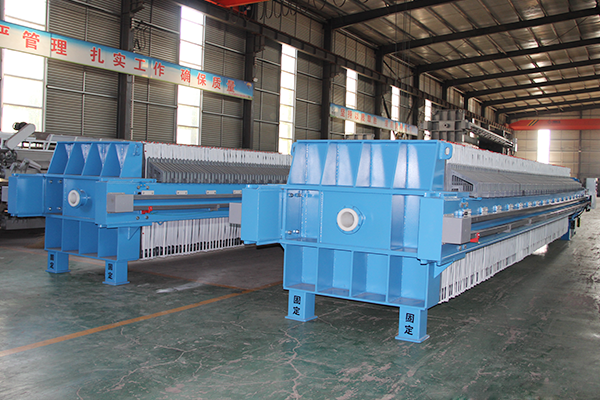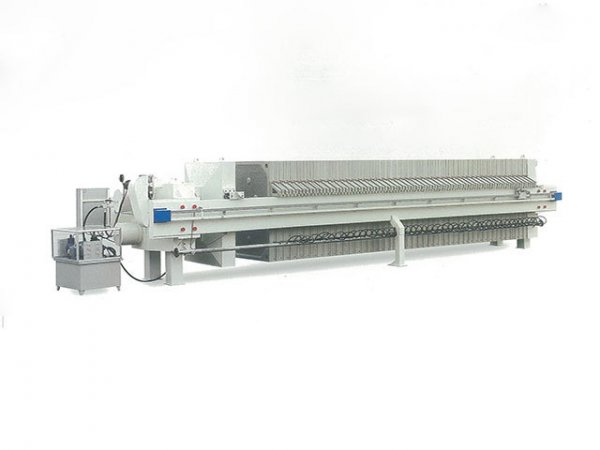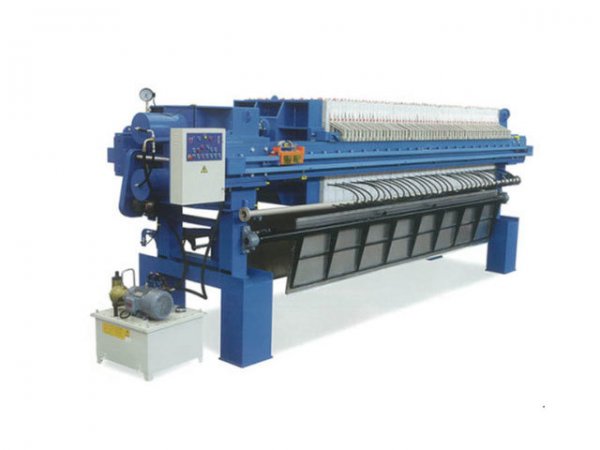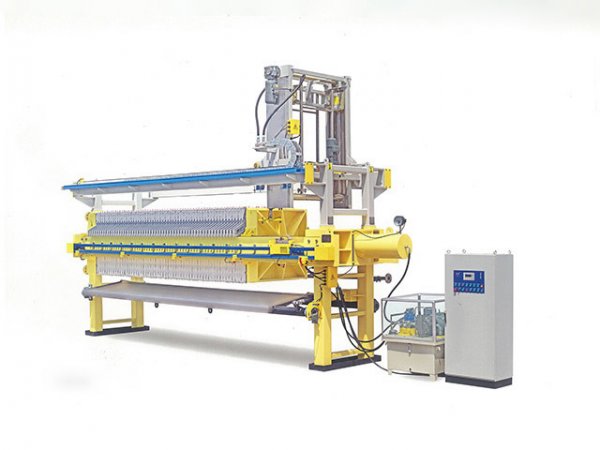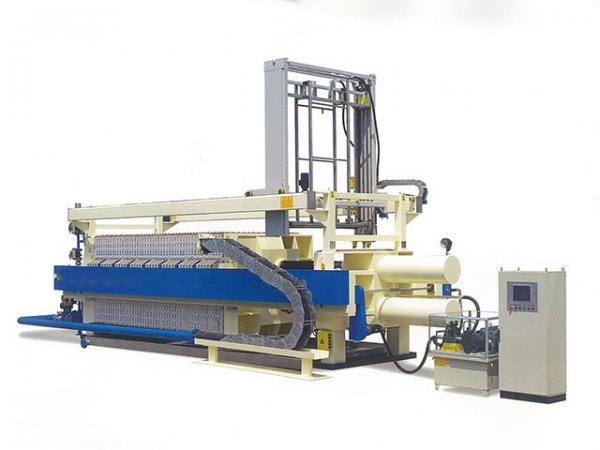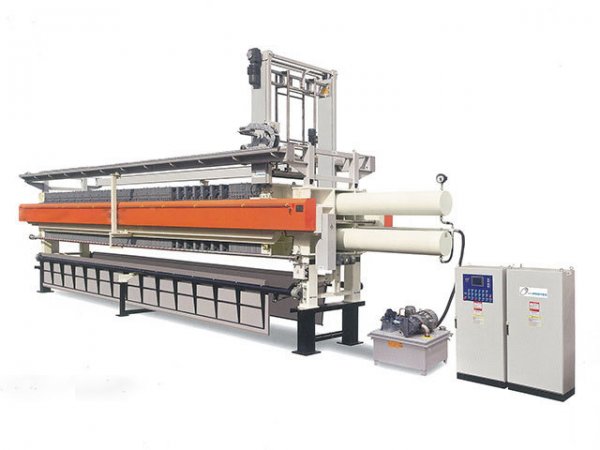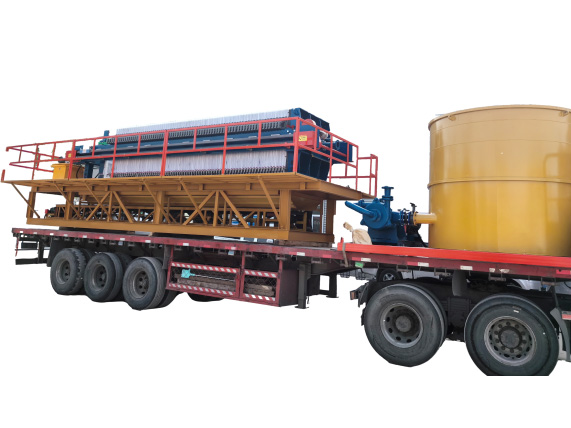NewsDetails
The Prospects for Large - scale Application of Vehicle - Mounted Filter Presses in River Regulation
author:Shuangcheng time:2025-03-21 19:05:56 Click:58
With the increasing global awareness of environmental protection, governments are enacting more stringent regulations regarding river water quality. In many regions, there are strict limits on the discharge of pollutants such as suspended solids, heavy metals, and organic matter. Vehicle - mounted filter presses can play a crucial role in helping meet these regulatory requirements. They are capable of efficiently separating pollutants from river water and sediment, ensuring that the water quality in rivers complies with the set standards. For example, in areas where the allowable concentration of heavy metals in river water has been significantly reduced, vehicle - mounted filter presses can be used to remove trace amounts of heavy metals through their high - precision filtration mechanisms.
1.2 Rising Public Concerns
The public's concern about the quality of river environments has been on the rise. Rivers are not only important for ecological balance but also for recreational activities and the overall well - being of communities. As people become more environmentally conscious, there is a growing demand for effective river regulation measures. Vehicle - mounted filter presses, with their ability to visibly improve river water clarity and reduce unpleasant odors caused by pollution, are likely to be well - received by the public. Their application can enhance the aesthetic value of rivers, making them more attractive for public use and contributing to the overall quality of life in the surrounding areas.
2. Advantages of Vehicle - Mounted Filter Presses in River Regulation
1.1 Mobility and Flexibility
One of the key advantages of vehicle - mounted filter presses is their mobility. Rivers are often long and meandering, with pollution sources distributed along their courses. Vehicle - mounted filter presses can be easily transported to different locations along the river, whether it's a remote upstream area or a heavily urbanized downstream section. They can be quickly deployed at the sites where pollution is most severe or where sediment accumulation is causing problems. This flexibility allows for targeted treatment, rather than a one - size - fits - all approach. For instance, during floods, when there is a sudden influx of sediment and debris into the river, vehicle - mounted filter presses can be rapidly moved to the affected areas to carry out emergency filtration and sediment removal.
1.2 High - efficiency Solid - Liquid Separation
In river regulation, large amounts of sediment and pollutants need to be separated from the water. Vehicle - mounted filter presses are designed to handle high - volume flows and can achieve efficient solid - liquid separation. Their filter plates and advanced filtration media can capture fine - grained sediment particles, as well as organic matter and other contaminants. For example, in rivers with high turbidity due to soil erosion, these filter presses can significantly reduce the suspended solid content in the water. By effectively removing these pollutants, the filter presses help improve water quality, promote the growth of aquatic plants, and support the recovery of the river's ecosystem.
3. Technological Advancements Facilitating Large - scale Application
1.1 Improved Filtration Technologies
Ongoing research and development are leading to continuous improvements in the filtration technologies used in vehicle - mounted filter presses. New filter materials with enhanced durability, higher porosity, and better pollutant - retention capabilities are being developed. For example, some advanced filter media can selectively remove specific pollutants, such as heavy metals or certain types of organic compounds, while allowing clean water to pass through. These technological advancements not only increase the efficiency of the filter presses but also make them more suitable for the complex and diverse pollution scenarios found in rivers. As a result, they are better equipped to handle large - scale river regulation projects.
1.2 Automation and Remote Control
The integration of automation and remote - control features in vehicle - mounted filter presses is another significant development. Automated systems can monitor and adjust various parameters during the filtration process, such as pressure, flow rate, and filtration time, to ensure optimal performance. Remote - control capabilities allow operators to manage the filter presses from a distance, reducing the need for on - site personnel in potentially hazardous or hard - to - reach areas. This not only improves operational efficiency but also makes it easier to coordinate large - scale deployment of multiple filter presses along a river. For example, in a large - scale river restoration project involving multiple treatment sites, operators can remotely control and monitor a fleet of vehicle - mounted filter presses, ensuring seamless operation and effective pollution control.
4. Cost - effectiveness in the Long Run
1.1 Reduced Transportation and Infrastructure Costs
In traditional river regulation methods, sediment and polluted water may need to be transported to centralized treatment facilities, which incurs high transportation costs. Vehicle - mounted filter presses, being mobile, can carry out on - site treatment, eliminating the need for long - distance transportation. Additionally, they do not require the construction of large, fixed - site treatment infrastructure. This significantly reduces capital and operational costs associated with infrastructure building and maintenance. For example, instead of building a permanent wastewater treatment plant near a river, a vehicle - mounted filter press can be used for periodic or as - needed treatment, saving on the costs of land acquisition, construction, and long - term facility upkeep.
1.2 Potential for Resource Recovery
In some cases, the materials separated by vehicle - mounted filter presses in river regulation can be recycled or reused. For example, the dewatered sediment may contain valuable minerals or organic matter that can be processed and used in construction materials or as soil conditioners. By recovering these resources, the overall cost - effectiveness of the river regulation project can be improved. This not only reduces the cost of waste disposal but also generates additional revenue streams, making vehicle - mounted filter presses an even more attractive option for large - scale river regulation applications.
 Recommended Products
Recommended Products
 Contact us
Contact us
—— Contact:Manager
—— Tel:+86 16632826789
—— Email:sales@hbscfilterpress.com
—— Url:http://www.hbscfilterpress.com
—— Address:West Zone of Economic Development Zone, Fucheng County, Hengshui City, Hebei Province

